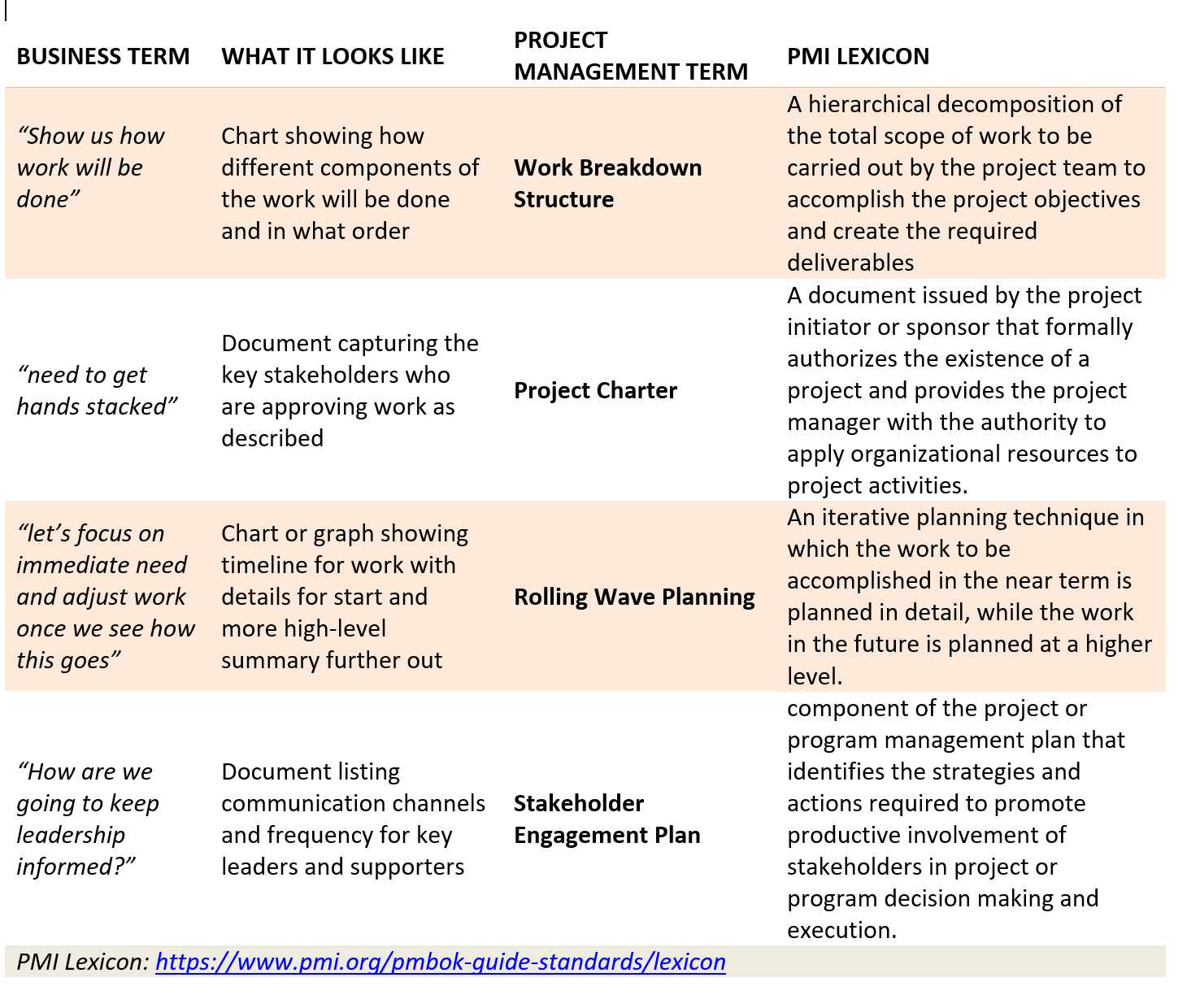
Speaking Project Management for Non-Project Managers
What all professionals need, those with formal Project Management titles and those without, is a keen understanding of what makes a business function and how that business fits into the relevant industry. That understanding is known as “business acumen.” Consider this scenario:

In the example, and in thousands of similar moments in businesses of all types, people with no project management training or formal background are in fact doing project management work. A core component of business acumen is speaking “project management.” It is an important professional skill for anyone that:
- works with Project Managers,
- uses project management information to report to leadership,
- translates project management work for generalized business audiences, and/or
- writes proposals, grants, or contracts.
One does not need to have a PMI Project Management Professional (PMP ®) certification to “speak” project management. You can grow the skills needed to connect project and business concepts.
Business Acumen
Speaking the language of formal project management is part of an overall business acumen. As described in this Society for Human Resource Management (SHRM) article, business acumen is:
“…understand[ing] its organization’s operations and functions, as well as the industry and competitive environment in which the organization operates…uses that information to effectively make business decisions.”
Business professionals should gain knowledge and understanding of core project management terms and processes as it enhances one’s ability to better understand how work is assigned, managed, and monitored in an organization.
Project Management Term Translations
Within the global Project Management Institute (PMI) standards, including A Guide to the Project Management Body of Knowledge (PMBOK® Guide), there is a robust lexicon of terms. It is important for those that navigate different aspects of an organization to be able to translate the business term (left column) into the project management term (3rd column) in order to best meet the need. Examples include:

In the provided examples, the non-project manager asks for explanations or information using more common business terms. Those requests have a direct correlation to formal project management, if one is able to speak the language. Connecting the business side to the project management side enables you to improve communications between groups, prevent duplication of efforts due to misunderstandings, and foster alignment of need and goals.
Business Value of Business Acumen
Fortunately, you probably know more project management than you realize and can build on that to grow your overall business acumen. Consider training topics that are project management in foundation but enhance your overall business acumen and professional skill set.
You may not have a formal project management background but find yourself collaborating with project managers as part of your daily responsibilities. Growing your skills and fostering business acumen in your teams will benefit all.
About Megan Bell, MPM, PMP
A multi-hyphenate of corporate training, higher education, and creative agency work, Bell’s passion for connecting people to impactful information fuels an evolving career journey. Her portfolio includes conducting learning analytic research and reporting, managing a corporate mentoring program, authoring a blog series, facilitating leadership and career programs, serving on a non-profit board, and even occasional voice work. Bell’s education background encompasses UNC-Chapel Hill, Western Carolina University, and North Carolina State University.




